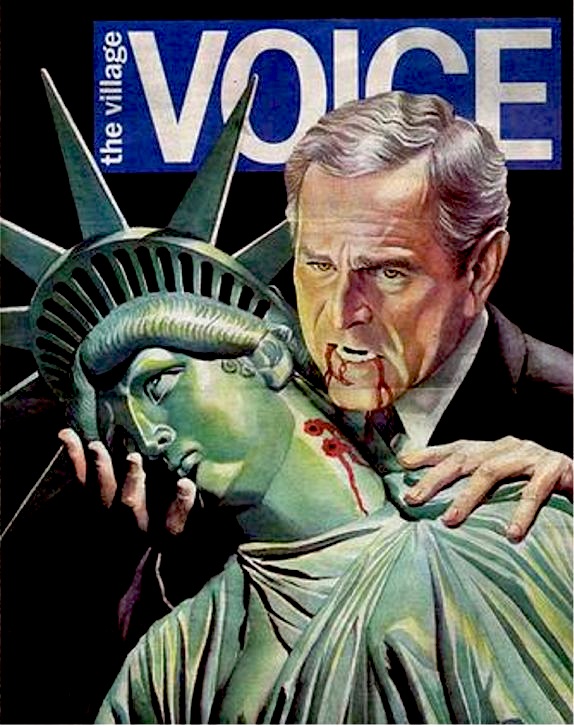BY PETER BAKER/WASHINGTON POST STAFF WRITER Not that they’re worried or anything. But the White House evidently leaves little to chance when it comes to protests within eyesight of the president. As in, it doesn’t want any. A White House manual that came to light recently gives presidential advance staffers extensive instructions in the art of “deterring potential protestors” from President Bush’s public appearances around the country.
Among other things, any event must be open only to those with tickets tightly controlled by organizers. Those entering must be screened in case they are hiding secret signs. Any anti-Bush demonstrators who manage to get in anyway should be shouted down by “rally squads” stationed in strategic locations. And if that does not work, they should be thrown out.
But that does not mean the White House is against dissent — just so long as the president does not see it. In fact, the manual outlines a specific system for those who disagree with the president to voice their views. It directs the White House advance staff to ask local police “to designate a protest area where demonstrators can be placed, preferably not in the view of the event site or motorcade route.”
The “Presidential Advance Manual,” dated October 2002 with the stamp “Sensitive — Do Not Copy,” was released under subpoena to the American Civil Liberties Union as part of a lawsuit filed on behalf of two people arrested for refusing to cover their anti-Bush T-shirts at a Fourth of July speech at the West Virginia State Capitol in 2004.
The techniques described have become familiar over the 6 1/2 years of Bush’s presidency, but the manual makes it clear how organized the anti-protest policy really is. The lawsuit was filed by Jeffery
and Nicole Rank, who attended the Charleston event wearing shirts with the word “Bush” crossed out on the front; the back of his shirt said “Regime Change Starts at Home,” while hers said “Love America, Hate Bush.” Members of the White House event staff told them to cover their shirts or leave, according to the lawsuit. They refused and were arrested, handcuffed and briefly jailed before local authorities dropped the charges and apologized.
The federal government settled the First Amendment case last week for $80,000, but with no admission of wrongdoing.
Curated News, Culture And Commentary. Plus, the Usual Sex, Drugs and Rock n' Roll

